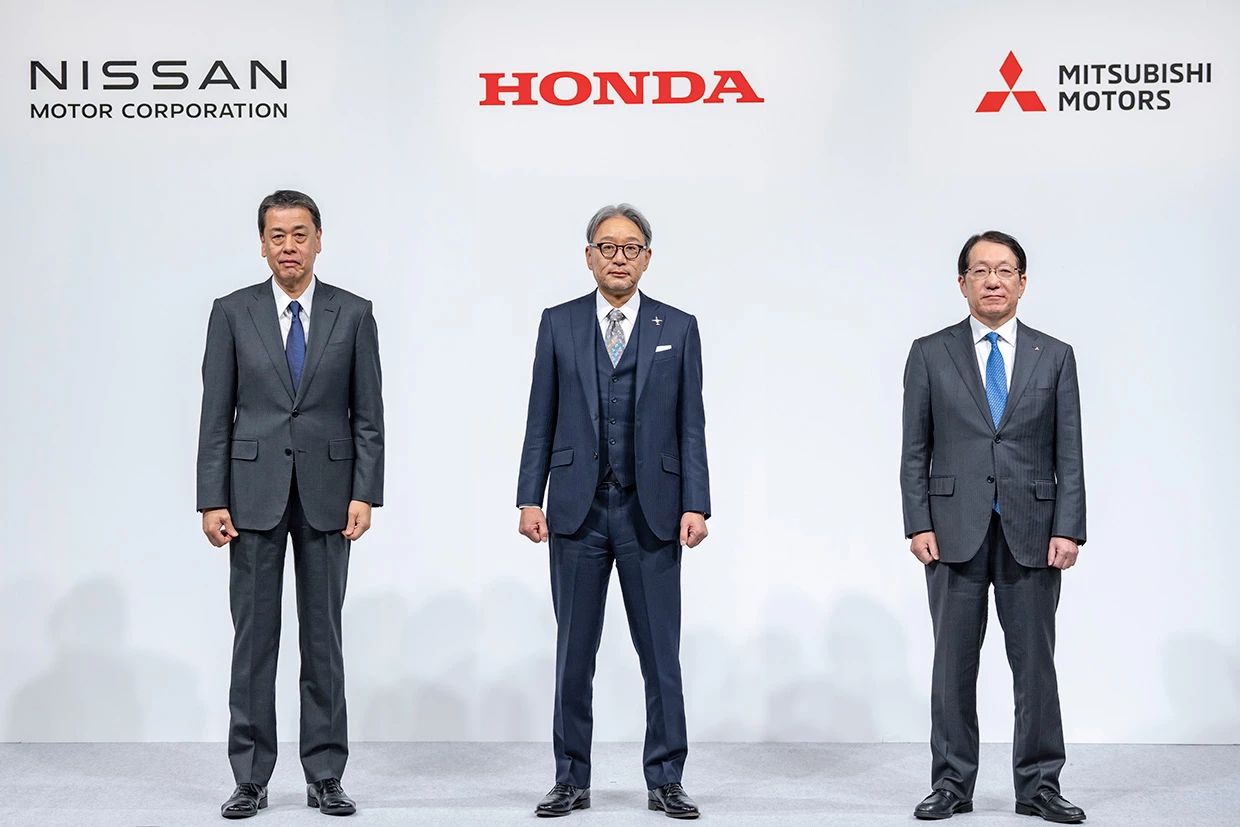Less than two months after a potential merger was floated, Honda and Nissan have called the potential partnership off, forcing Nissan, which has been experiencing difficulties, to explore alternate collaborations.
This has resulted in the end before it began of a collaboration that, in theory, would have produced one of the world's largest automobile manufacturers – the world's third-largest carmaker by unit sales, behind Volkswagen and Toyota, to be precise.
Apparently, Honda and Nissan had initially consented to a merger arrangement that would have placed the two automakers under a single holding company. Honda, whose market value is roughly five times that of Nissan, subsequently proposed turning Nissan into a subsidiary through a share exchange.

The CEOs of the two businesses sparred over Honda's attempt to alter the terms of the agreement during different press briefings. Toshihiro Mibe of Honda expressed concern that if Nissan continued to have sway over the board, difficult but essential choices might become stuck in limbo.
The original plan "would not keep up with the speed demanded by the times," according to Mibe. On the other hand, Makoto Uchida, the CEO of Nissan, stated that he could not accept the company being a part of Honda because "we could not be certain how much of our autonomy would be preserved or whether our full potential could truly be realized."
Achieving economies of scale would have helped both companies improve their R&D capacities and compete more effectively in fields involving cutting-edge technologies. Talks had advanced to a stage where even Mitsubishi Motors eventually joined the two.
A failed partnership will have significant repercussions for all three brands, but particularly for Nissan. it will now need to find another source of funding to improve its precarious financial situation.
On the contrary, Honda has maintained its annual profit prediction following third-quarter results that were mainly in line with forecasts.
One potential suitor that has been mentioned in the past few days is Foxconn, a Taiwanese electronics firm best known for building iPhones and other Apple products. Foxconn chairman Young Liu stated on Wednesday that, while he was receptive to working with Nissan, he had no plans to pursue an acquisition.

In the meantime, Nissan said it would reduce expenses by the equivalent of US$2.6 billion as it seeks aid, in part by reducing some operations at facilities in Smyrna, Tennessee, and Canton, Mississippi. One-fifth of the senior management posts are set to be eliminated. Ouch.
All is not gloom, though. After plans to merge both brands under a holding company were abandoned, the two companies announced that they would maintain their strategic cooperation with Mitsubishi Motors Corp. and work together on the in-house development of batteries, autonomous driving software, and electric vehicle technology.
“While the outcome is unfortunate, we now have a mutual appreciation of our synergies that can be utilized in our existing strategic partnership,” Honda Chief Executive Officer Toshihiro Mibe explained.
Honda's operating profit for the three months that ended on December 31 was ¥397 billion (US$2.6 billion), which was ever-so-slightly less than the ¥407 billion that analysts had predicted. The company noted that a recovery in the US helped offset stagnating sales in China, Japan, and Southeast Asia.
Nissan, in comparison, reported a significantly lower operational income for the entire fiscal year, which was ¥120 billion (US$790 million) as opposed to ¥150 billion (US$990 million). In its prediction, a restructuring charge of ¥100 billion (US$660 million) was included.

According to Mibe, Honda has not and will not consider a hostile takeover of Nissan and the Japanese government has neither started nor taken part in negotiations with the Nissan CEO.
I, for one, was looking forward to a merger of this size. The new group would have had the clout to compete with heavy hitters like Volkswagen AG and others, taking on the influx of Chinese electric and hybrid car brands in the process.
Instead, the failed merger sheds light on what the true scenario really was: one brand sought a financial rescue, while the other sought to scale up to compete with industry titans in a shifting global landscape. But was this ever even a secret?
Where do Honda, Nissan, and Mitsubishi go from here?
Source: Honda




